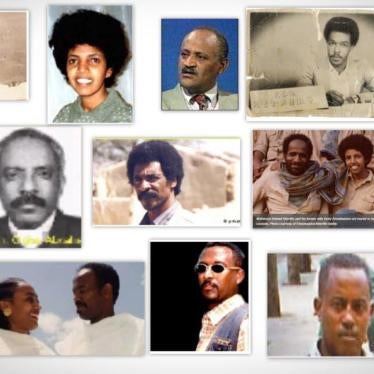Canada’s Supreme Court has just ruled that a Canadian mining company which had operations in Eritrea can be sued in Canada for alleged abuses abroad. The ruling, made last Friday, sets a groundbreaking precedent.
Nevsun Resources Ltd. once owned 60 percent of the Bisha mineral mine in Eritrea, and the Eritrean government owned the rest.
In Eritrea, much of the country’s population is forced to work for the government under the country’s abusive “national service” program, which legally lasts 18 months but in practice lasts indefinitely, often for more than a decade. A United Nations Commission of Inquiry called it “enslavement.” Eritrea has no independent court system and citizens have no way to seek recourse.
Friday’s ruling related to a civil suit, initially brought in the Canadian province of British Columbia, by three Eritreans who claimed they were forced to work at the Bisha mine as part of their “national service.” They alleged “they were forced to provide labor in harsh and dangerous conditions for years” and were subject to a “variety of punishments.”
In a 2013 investigation into this mine, Human Rights Watch found that an Eritrean construction firm, owned by the country’s ruling party, had built part of the mine’s infrastructure. We found evidence that the firm regularly exploited conscript workers assigned to it by the government. We spoke to former Bisha workers and conscripts who said they faced terrible conditions, long working hours, inadequate pay, and unsafe and overcrowded housing. Workers lived in fear and were ordered not to complain, especially to visiting foreigners. “We were afraid for our lives,” one former conscript said.
Canada’s Supreme Court held that if the plaintiffs’ allegations were true, Nevsun’s participation in the abuses would violate customary international law, which prohibits forced labor.
In our 2013 report, we found that Nevsun had not initially done enough to prevent forced labor when it started building its mine in 2008, and that while it subsequently improved its policies, it still did not have the ability to investigate forced labor.
Following the court’s decision, Nevsun once again denied all the plaintiffs’ allegations and stressed that contractual commitments in place with its indirect Eritrean subsidiary strictly prohibit the use of national service employees. Nevsun was bought out by a Chinese mining company in December 2018.
For the many Eritreans living abroad, the court’s decision shows there can be accountability for abuses suffered in Eritrea. The ruling also means Canadian companies operating abroad need to be diligent about preventing abuses – or face consequences at home.










